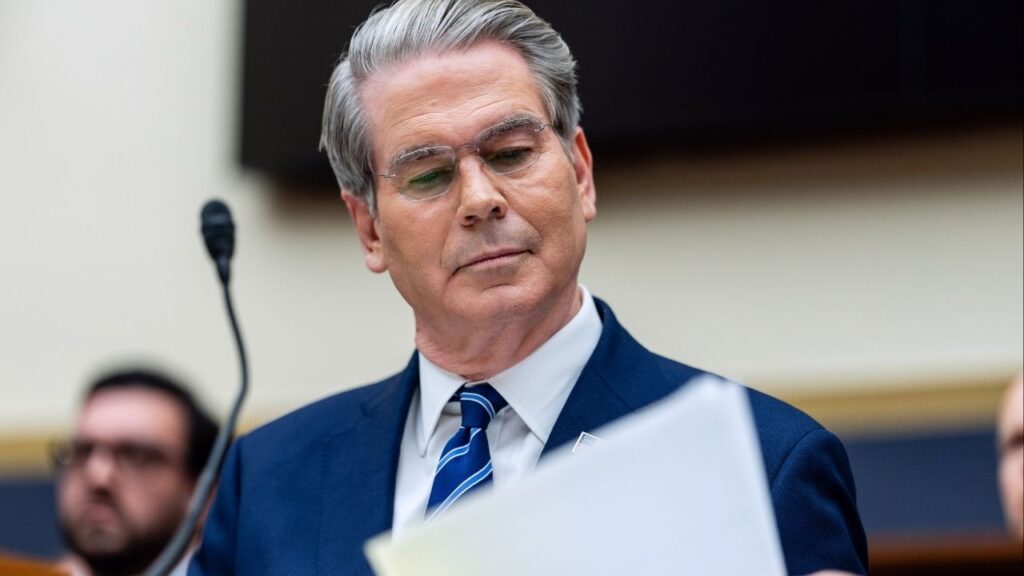Vice President Kamala Harris, the Democratic presidential nominee, during a campaign rally in Savannah, Ga., Aug. 29, 2024. (Damon Winter/The New York Times)

- Kamala Harris's campaign has stalled after a strong start, with voter sentiment declining according to recent focus groups.
- Experts suggest that Harris needs a clear narrative and stronger, more specific goals to reignite momentum in her campaign.
- Successful political campaigns, like gripping stories, rely on strong desires, compelling plots, and a willingness to show vulnerability.
Share
|
Getting your Trinity Audio player ready...
|

David Brooks
Opinion
Kamala Harris had a great first act. She established a buoyant tone for her 2024 presidential campaign and rode a wave of polling momentum.
But now her campaign has stalled. Undecided voters in a New York Times Opinion focus group were recently asked to describe her efforts. They responded with phrases like “honeymoon’s over,” “the paint is wearing off,” “uninspired,” “absent” and “scared to talk directly to the American people.”
Researchers who have been surveying voter sentiment as the campaign progresses found that there’s been a decline in how voters think about Harris, while sentiment toward Donald Trump has rebounded slightly since the September debate.
The crucial question for the rest of the campaign is: Can Harris regain momentum and construct effective second and third acts?
I thought it would be interesting to see what the experts say — to see how screenwriters, dramatists and novelists build momentum so that audiences are gripped by their work all the way through. Maybe these writers have some wisdom on how Harris can finish strong.
Playwright David Mamet once wrote a memo to a group of fellow writers in which he reminded them that audiences “will not tune in to watch information.” They will “only tune in and stay tuned to watch drama.” What is drama? Mamet says it “is the quest of the hero to overcome those things which prevent him from achieving a specific, acute goal.”
Screenwriter Aaron Sorkin builds on that definition. He says that strong drama is built around intention and obstacle. The hero has to be seized by a strong, specific desire, and she needs to face a really big obstacle.
That suggests that Harris needs to show the American people her strongest, most acute and controlling desire, the ruling passion of her soul. I know what Trump wants. He wants to dismantle the elites who he thinks have betrayed regular Americans. It’s unclear what Harris wants most deeply, other than the vague chance to do good and to be president. You don’t communicate your deepest desire when your campaign is run by a committee.
The second thing a compelling drama or campaign needs is a clear and gripping plot: Here’s where we are. Here’s what threatens us. Here’s where we are going.
Christopher Booker wrote a book called “The Seven Basic Plots,” arguing that there are just a few iconic storylines that show up again and again, both in literature and in the way people conceive of their own life stories. For example, some people narrate their lives as rags-to-riches stories. Ronald Reagan’s life story was a testament to the idea that anybody can realize the American dream. Other people see their lives as redemption stories. They were succeeding, they suffered a blow, and they came back better. George W. Bush used to tell that story about struggling with alcohol and then coming to faith.
Other people see themselves overcoming the monster. They see life as a battle against malevolent foes. I’d say the uber-combative Trump falls into this category. So, in a different way, did Richard Nixon, who saw himself as the scrappy outsider perpetually facing establishment foes.
If you don’t have a clear personal narrative, people will struggle to fully understand you, and you will struggle to define your priorities. As philosopher Alasdair MacIntyre argues, you can’t know what to do unless you know what story you are part of.
Politicians who are gripped by a strong desire and see themselves living out a powerful plot go off on quests that progressively reveal who they are. For example, Barack Obama began his campaign for president Feb. 10, 2007. He ran a desultory campaign for the next nine months. He only gradually groped his way toward the hope and change message that became the passionate core of his campaign, which emerged in Iowa in November. Then, in March 2008, he showed a different dimension of himself with a cerebral and historically informed speech on race in Philadelphia. As the election went on, Obama gripped our attention by showing greater depths of himself.
By contrast, I can think of only one time we learned something surprising about Harris during her short campaign — that she owns a gun. Otherwise, she seems to hold conventional Democratic postures on all things. That’s not gripping.
Finally, we want our heroes to be strong, not perfect. If all they do is remind us of their strengths, they get boring. Compelling characters have what British author and writing instructor Will Storr calls a “sacred flaw.” There is a truth and a value that they hold most dear. It tells them how to orient their life, how to exercise control over their environment. But, as psychologist Jonathan Haidt told Storr for his book “The Science of Storytelling,” “Follow the sacredness. Find out what people believe to be sacred, and when you look around, there you will find rampant irrationality.”
For example, for John McCain, patriotism and honor were sacred. In the 2000 Republican primaries, when George W. Bush insulted his patriotism and sense of honor in South Carolina, McCain’s campaign went completely bonkers, overreacting and lashing out. Love of honor made him great, but that passion to defend his honor undermined his campaign. But a person of integrity holds some things so dear, he is willing to be a little irrational about them, is willing to defend them even at the sake of his career. This is the core of who he is, and we want to know the rock on which he stands.
Heroes aren’t only revealed by their quest; they are also changed by it. We don’t just want to see people as they are; we also want to understand how they have changed. In an interview on “60 Minutes,” Harris was given a chance to explain why she has changed positions on so many issues. Instead of taking us inside the process, she papered it over with vague generalities. There must be a deeper story to tell. Any normal human must have reflected on what happened and reached conclusions about why she shifted so opportunistically with the fashions. But she missed the chance to explain how she learns and grows.
Novelist E.M. Forster reminded us that literature has one overriding imperative: “only connect.” The reader needs to feel a connection with the character, needs to feel that she wants what I want, that her quest is like my quest, that her energy radiates out and touches me. Campaigning follows the same imperative. If the candidate is unwilling to be vulnerable and throw himself on the audience, then he gives the audience no chance to catch him, to hold him up.
It’s a rule that governs passionate writing and passionate campaigning: To get everything you want, you have to release your fears and let yourself go.
–
This article originally appeared in The New York Times.
By David Brooks/Damon Winter
c. 2024 The New York Times Company
RELATED TOPICS:
Categories

Bredefeld Responds to Arambula’s Letter on ICE, Immigration

Ferreira Completes His Halfpipe Set with Gold

















